
AI for Lung Nodule Detection and Analysis
An AI Solution for Detection and Analysis of Lung Nodules from Chest CT.
Detecting and Analyzing Easy to miss Lung Nodules on Low-Dose Chest CT with Imaging Artificial Intelligence.
Efficiently diagnose with awareness of patient conditions.
Finding microscopic nodules provides a variety of information, including basic, number of nodules, size and status, and RADS category. Findings that are likely to develop into lung cancer can also be checked in advance, reducing working time and allowing efficient reading depending on the case. Microscopic Nodule Detection: Providing Comprehensive Information on Number of Nodules, Size, Status, and RADS Category Early Detection of Potential Lung Cancer Development Enables Time-efficient Scans Reading.
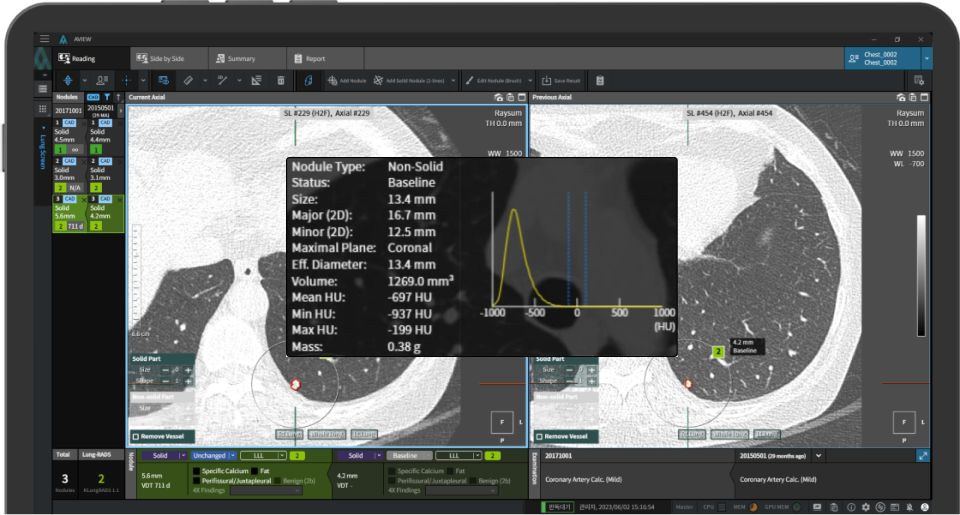
Detecting Nodules of Various Sizes, from Small to Large

Automated Matching of Follow-up with Previous Lung CT Scans Instantly Assess Nodule Changes.
Monitoring Nodule Growth is Vital for Accurate Readings.
It autonomously assesses growth and changes by matching lung nodules, going beyond mere image comparisons.aview LCS efficiently classifies lung nodules into the relevant categories according to the Lung CT Screening Reporting and Data System (Lung-RADS ver 1.1) guidelines as recommended by the American College of Radiology.
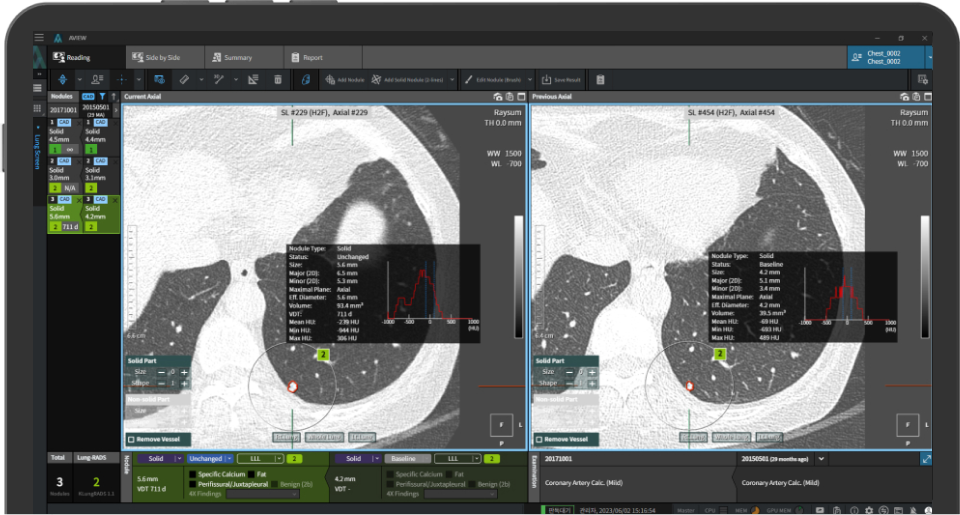
CT Findings are visualized in 3D.
User-Friendly Viewer for Medical Professionals and Patients.
Advanced 3D Rendering of Patient’s Lung.
2D Images May Not Provide Adequate Information of Abnormal Findings Visualized 3D Model of Patient’s Lung is much more informative and intuitive. Abnormal findings can be easily explained by demonstration of the 3D Model.
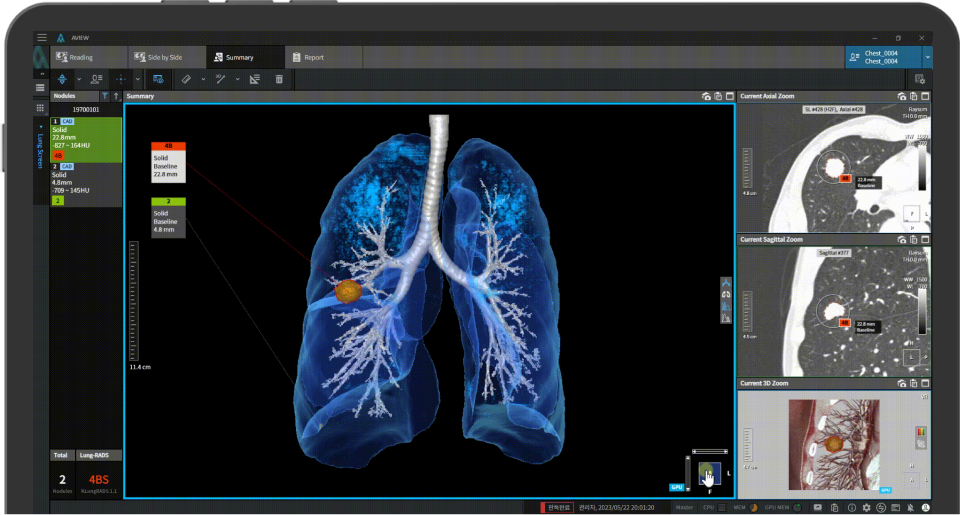
Automatically Analyze Lung Cancer Screening Results and Generate Comprehensive Reports.
Automate Tedious manual Tasks to Save Time.
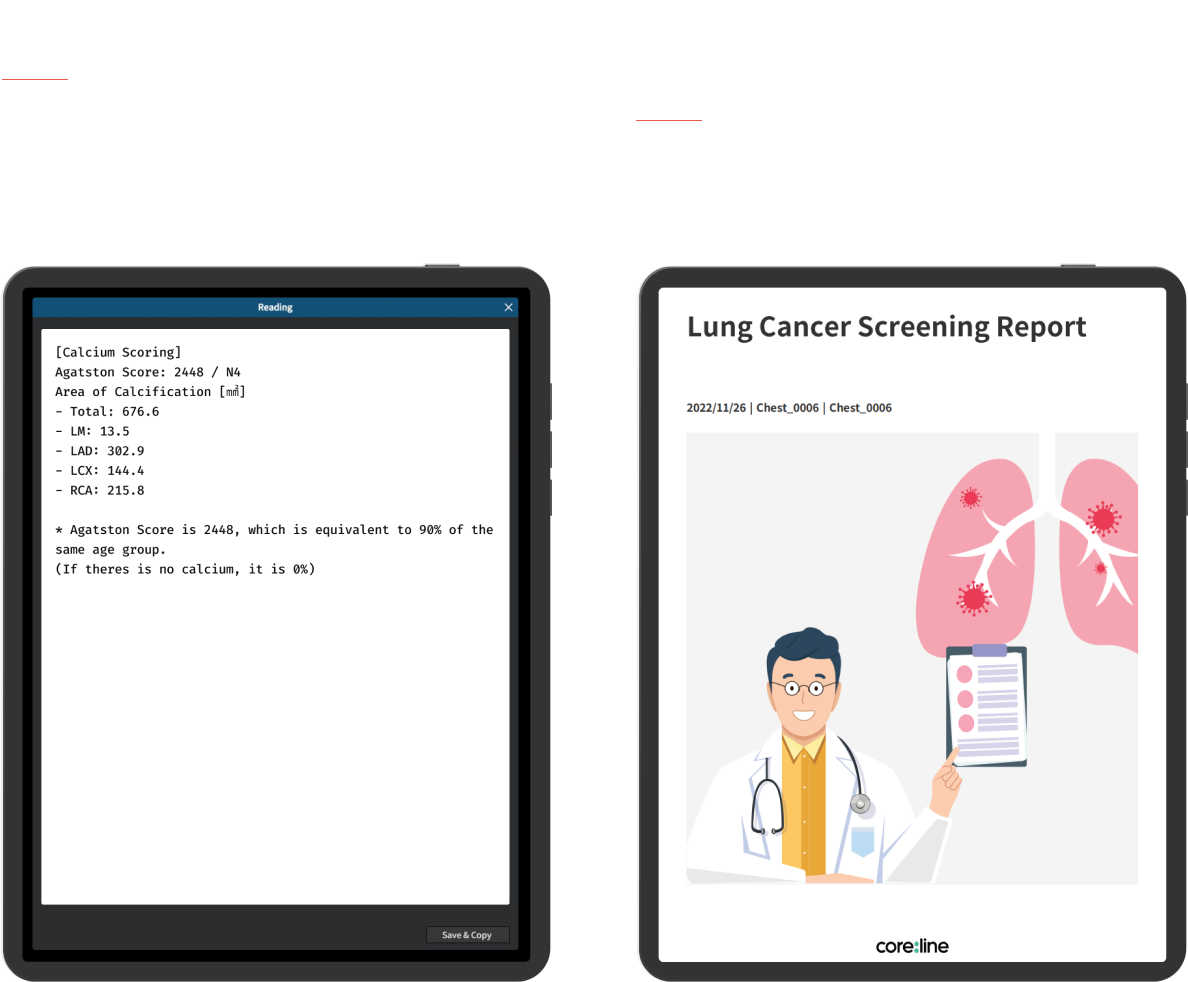
Clinically Proven: AI Medical Technology Saves Time and Enhances Reading Accuracy.

Outstanding negative prediction performance of solid pulmonary nodule volume AI for ultra-LDCT baseline lung cancer screening risk stratification
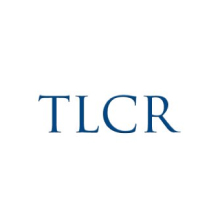
Feasibility of implementing a national lung cancer screening program: Interim results from the Korean Lung Cancer Screening Project (K-LUCAS)

